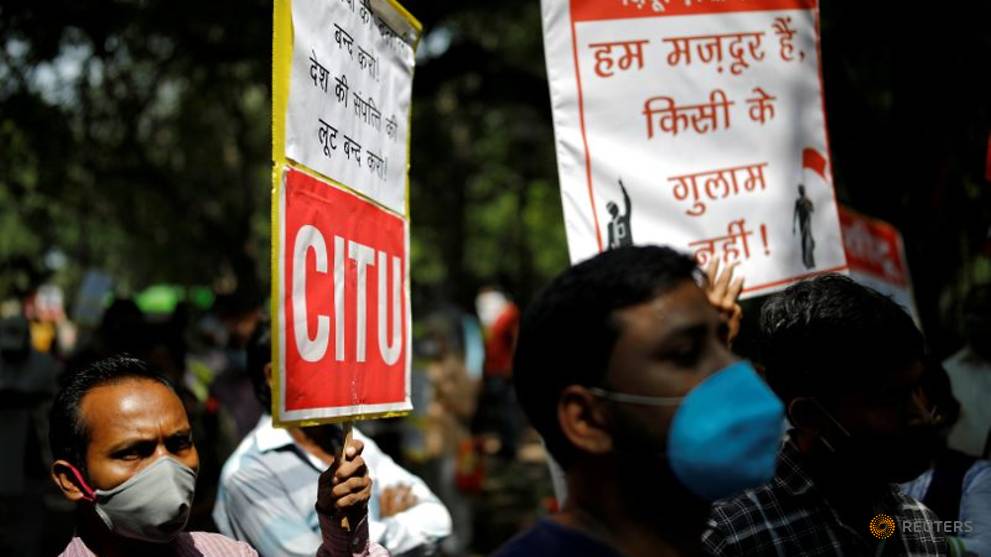
Businesses cheer, unions fear contentious Indian labour reforms
NEW DELHI: Business groups on Thursday (Sep 24) welcomed contentious and long-delayed labour reforms..

NEW DELHI: Business groups on Thursday (Sep 24) welcomed contentious and long-delayed labour reforms passed by India's parliament this week, aimed at making hiring and firing workers easier and imposing restrictions on trade unions.
The reforms to India's decades-old labour laws are a key part of Prime Minister Narendra Modi's moves to liberalise conditions for investment. But they have met with resistance from trade unions that plan to join a nationwide agitation on Friday against these and several other bills passed by the government.
Advertisement
Advertisement
Three key bills on labour reform were approved by India's upper house of parliament late on Wednesday, and will become law after receiving presidential approval. They were approved by the decision-making lower house on Tuesday.
"This change is welcome and bound to create more attraction for foreign investments in small-scale sectors," said KE Raghunathan, convener of Consortium of Indian Associations, an umbrella group representing small businesses.
"At the same time, workers might fear losing their rights in certain cases, and the onus is on the employers to make sure this feeling is eliminated."
Under the Industrial Relations Code, one of the three new laws, companies employing up to 300 workers will not require government permission to lay off workers or close plants – an increase from the previous cap of 100 and a major demand from industry over the years.
Advertisement
Advertisement
The code also puts restrictions on the recognition of trade unions – making it mandatory for them to represent at least 10 per cent of workers in a given sector – and prohibit them from striking without prior notice and during conciliation proceedings.
Businessman Vinod Kumar, who employs just over 100 people at his factory making parts for Indias Tata Motors in the north Indian city of Lucknow, said the code will help him to expand operations.
"This will give us some power and rein in the labour unions, who have now a habit of blackmailing us in the name of increasing remuneration," he said.
Rick Rossow, a senior adviser at the Washington-based Center for Strategic and International Studies, who specialises in US-India business ties, said the reforms were likely to prove attractive to overseas investors.
"Foreign companies have long listed India's stifling labour regulations as a key deterrent to making larger investments," he said.
The northern state of Rajasthan, that introduced similar laws for companies with fewer than 300 workers in 2014,Read More – Source

